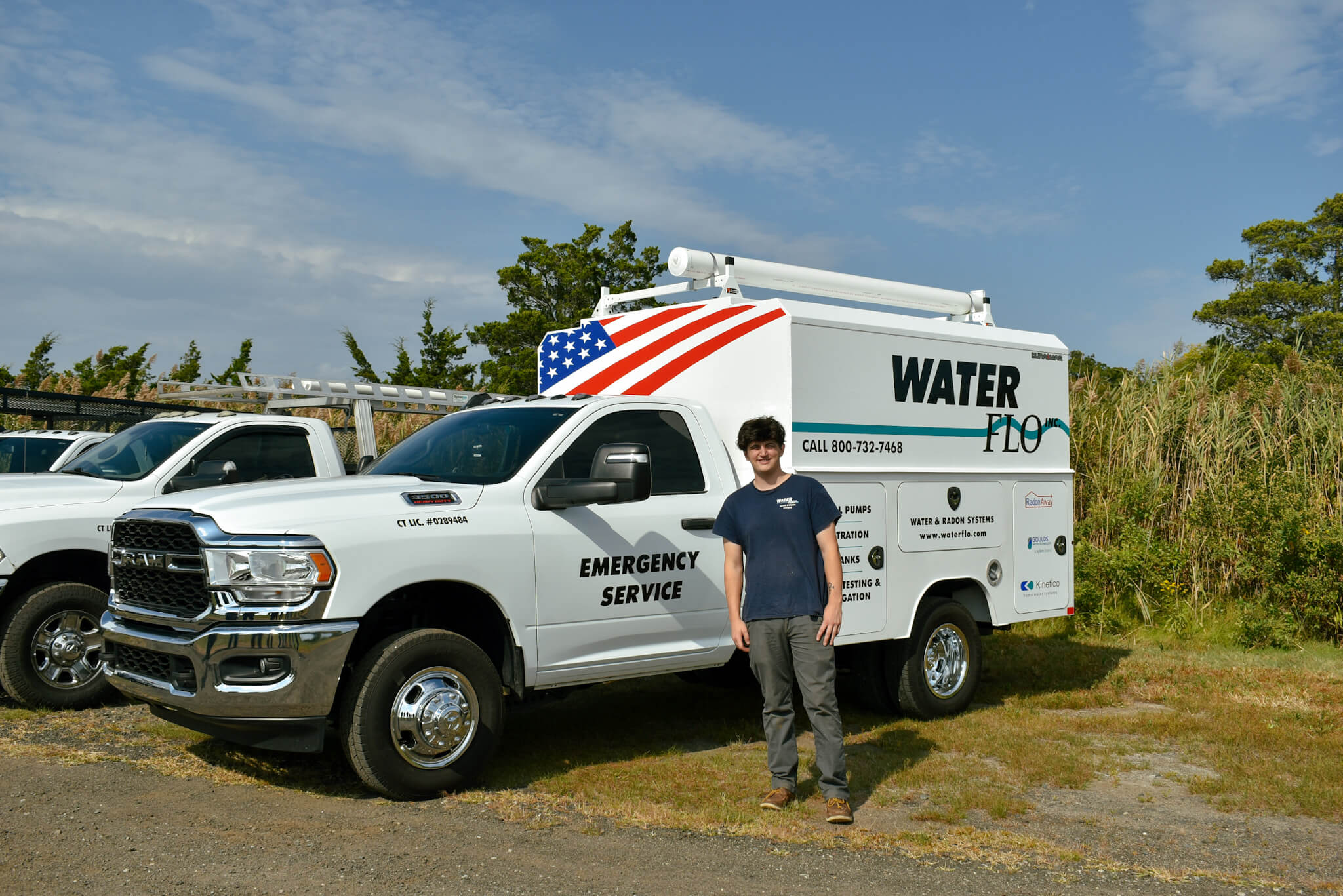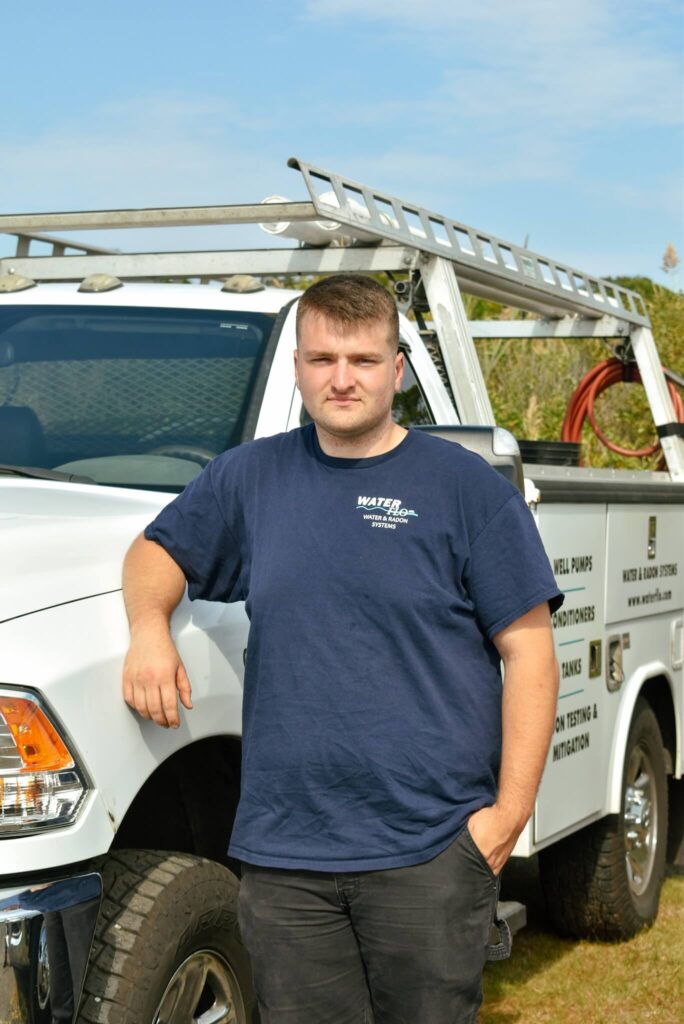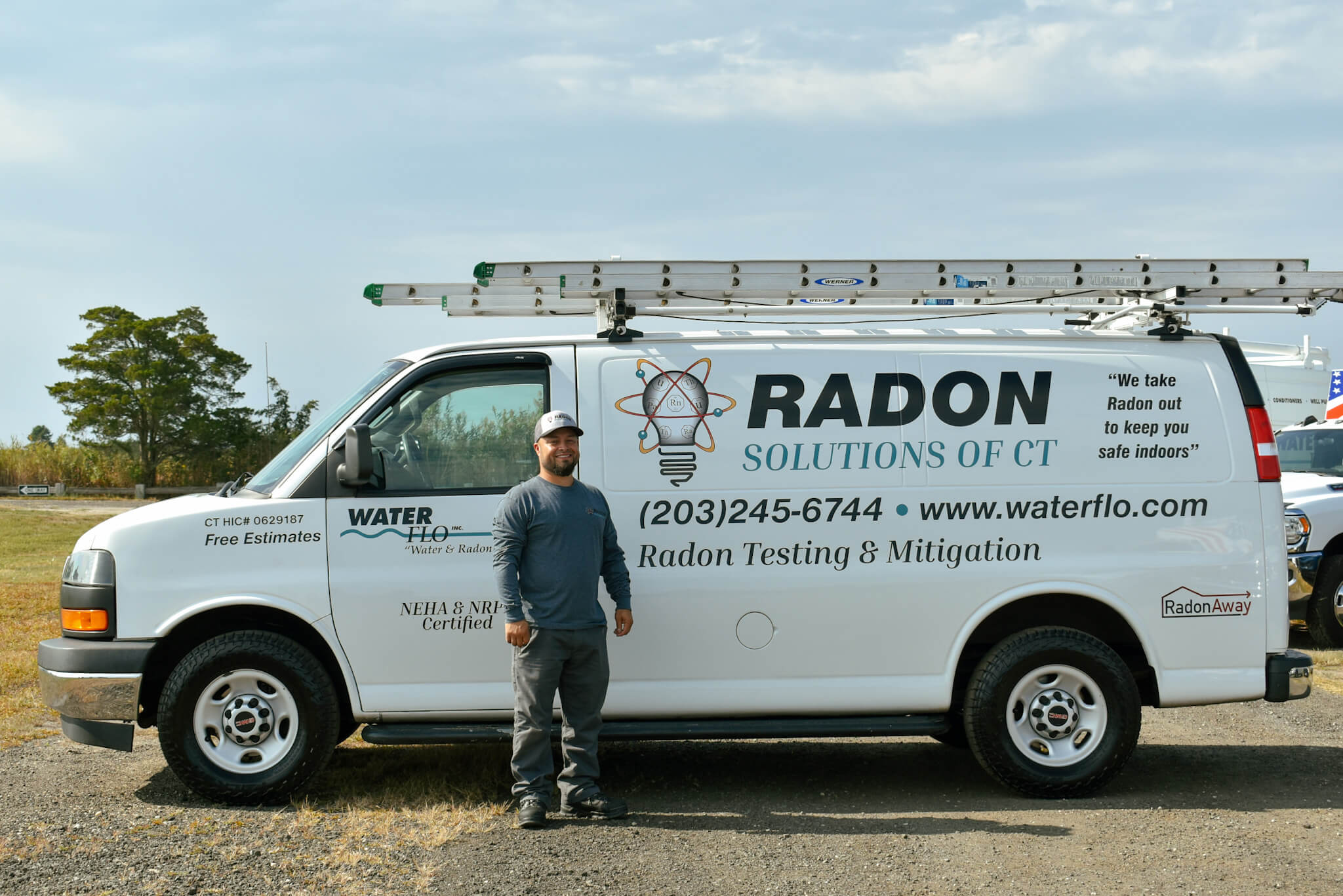To Our Customers: Happy Spring! It’s time for Spring maintenance. Have you checked your well water pressure, or when was the last time you had water tests? Encounter any strange odors, colors, or tastes? These are perfect reasons to consider our Maintenance Plan options here. Don’t hesitate to contact us for non-DIY concerns.
Remember, we are offering 50% off radon test kits (specifically the double liquid scintillation) until the end of April. Please give us a call to receive a kit by mail, or request one when scheduling your next service.
Best regards, The Water-Flo Team
Water-Flo Gives Back This March, we supported the Essex Land Trust and Old Lyme Land Trust as part of our commitment to giving back to our communities. Learn more about these trusts at Essex Land Trust and Old Lyme Land Trust.
Variable Speed Pumps Turn Up the Pressure Noticing gradual changes in water pressure? Spring and the upcoming watering season often spotlight these issues. Learn more about the types of well pumps and their life expectancy, as well as why we prefer the Constant Pressure Pump for its numerous benefits including better water pressure and efficient usage here.
Gradual changes in water pressure may be one of those things we don’t notice. As we head into Spring and then Watering Season, often followed by Drought Season in Connecticut, we suddenly pay more attention to the water flow. Here’s some information on well pumps that may help you stay on top of potential water pressure issues.
All wells have pumps and there are two general kinds, submersible and jet pumps. Submersible pumps hang down in the well; jet pumps are most often used for shallow wells and are mounted above the well, either in the home or in a pump house. Submersible pumps usually last about 15 years and jet pumps last about 10 years. Unfortunately, there aren’t a whole lot of signs that your well pump is going bad. Usually you just wake up to no water- of course at the most inconvenient time! A few warning signs to keep an eye out for are:
- Fluctuations in water pressure
- Spitting faucets
- Strange noises or clicks coming from the pressure tank
- Unexpectedly high electric bills
Not all of these signs could be from your pump; the pressure tank is a common culprit as well. And it doesn’t always mean your equipment is failing; it could be a simple repair!
There are two types of submersible pumps as well- a conventional pump and a variable speed pump (also called a constant pressure pump). A conventional pump has two speeds- on and off. A pressurized switch turns the pump on at a specific pressure and off again when the desired pressure is reached and can be a source of more water pressure variability. The Constant Pressure Pump is Water-Flo’s preferred option because it operates using a variable speed motor, which allows the pump to speed up or slow down depending on your level of water usage.
Benefits of this type model include:
- Better water pressure when taking a shower
- More “city-like” water pressure coming from all faucets
- Higher powered lawn irrigation
- A smaller, low cost, pressure tank that takes up less space
- Several built in features to prevent any damage to your pump
- Convenient push button pressure selection
If you’re not happy with your water pressure or feel it’s time for a pump upgrade, give us a call for a diagnostic evaluation and solution options!













